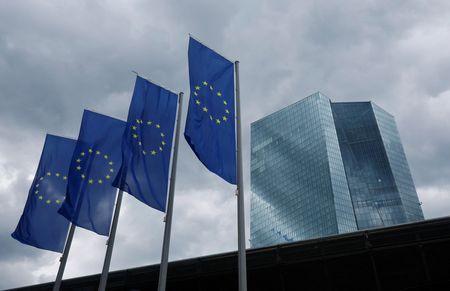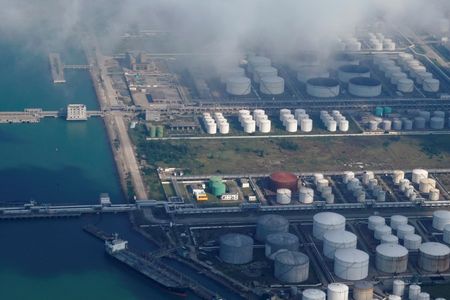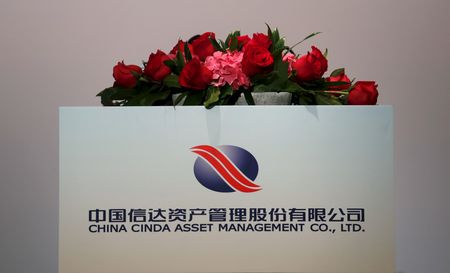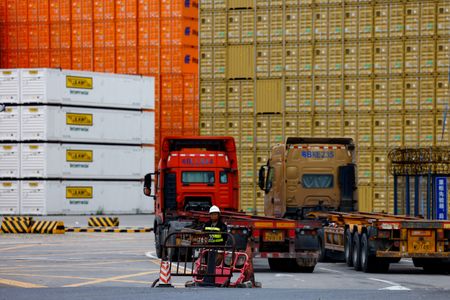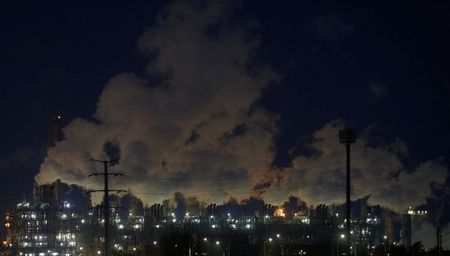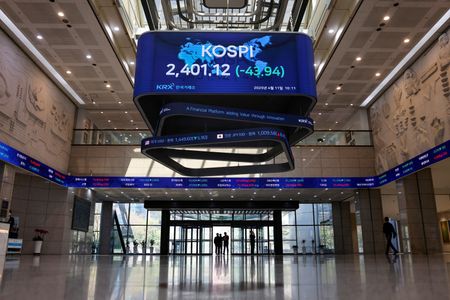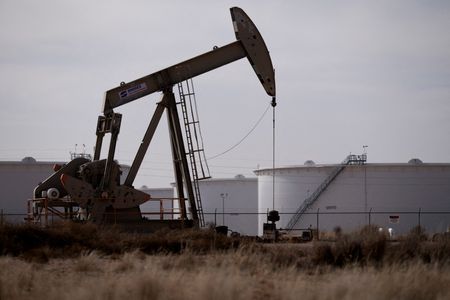By Balazs Koranyi and Francesco Canepa
FRANKFURT (Reuters) – European Central Bank interest rates have room to fall further as inflation moderates, ECB board member Piero Cipollone said, warning that the U.S. administration’s trade war with China could have a detrimental impact on the 20-member euro zone.
The ECB has lowered borrowing costs five times since June as growth concerns start to trump price worries, and investors see at least three more rate cuts this year in a bid to boost an economy struggling to rebound from two years of near stagnation.
“We all agree there is still room for adjusting rates downwards,” Cipollone told Reuters in an interview. “We are almost on target…(and) we are still in restrictive territory.”
But higher energy prices and global trade tensions are tugging the ECB in different directions, so there is no sense in committing to any specific move for now, including a widely anticipated and fully priced in cut in March, Cipollone added.
Still, the euro zone economy has not fundamentally changed since December, when the ECB’s projections assumed four rate cuts in 2025, including a move already delivered in a unanimous decision last month.
“The overall understanding of where we are going is there, the fundamentals haven’t changed, so I do not expect a big change in direction,” Cipollone said. “This convergence with the inflation target is coherent with a declining interest rate path.”
Inflation inched up to 2.5% last month but the ECB sees it back at 2% sometime this summer after four years above target.
CHINA RISK
The big uncertainty is U.S. trade policy and that could hit Europe hard, even before any direct trade barriers on the bloc, Cipollone argued.
“What concerns me more is if President Trump engages in a full trade war with China,” Cipollone, the newest member of the ECB’s board, added. “This is a more serious threat because China has 35% of the world’s manufacturing capacity.”
The U.S. imposed a 10% tariff on all Chinese imports this week, prompting retaliatory measures from Beijing.
Curtailing access to the U.S. would force China to find other markets and it could dump discounted products on Europe, curbing growth and prices, Cipollone said.
Models compiled by the Peterson Institute for International Economics, a Washington-based think tank, concluded that while the imposition of tariffs would see the U.S. itself take a hit to growth, it would suffer less than any of its targets.
However, Cipollone appeared to downplay the impact of potential tariffs directed at Europe.
He said firms could absorb some of the higher costs by sacrificing profit margin while the euro’s inevitable weakening against the U.S. dollar would also buffer the bloc.
Trade strife could drag economic growth down but not enough to induce a recession, especially since other parts of the economy are showing resilience.
Cipollone noted that the labour market is holding up, consumption is likely to rebound, construction is strong, rate cuts are feeding through to the economy and even industry, in recession for the past two years, is showing signs of bottoming out.
“We might not be booming but I am not expecting a recession at all,” he said.
Even if trade tensions threaten to drag inflation lower, other factors, particularly energy costs, were pulling prices in the other direction, so risks to the outlook remained balanced, even if some policymakers fear the ECB could undershoot its target.
Click here for the full Q&A of the interview.
(Reporting by Balazs Koranyi; Editing by Kirsten Donovan)

